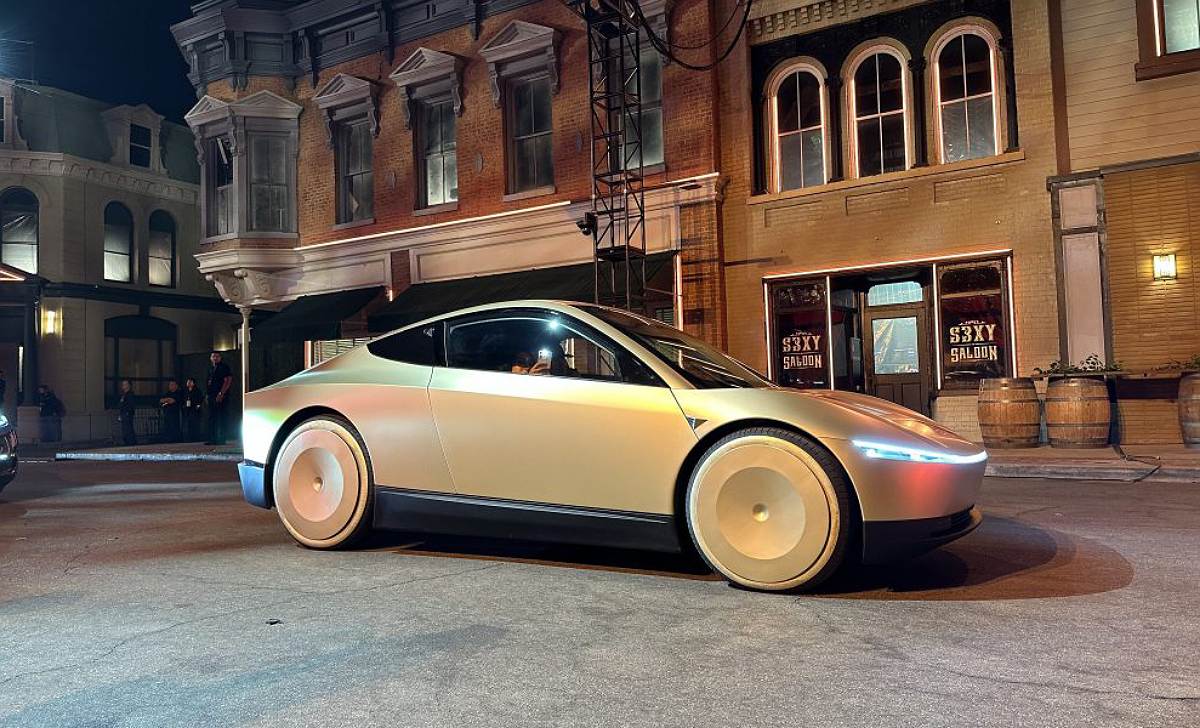Tesla just hit the brakes on a major parts order from China — and it could delay two of its most talked-about vehicles: the Cybercab and the Tesla Semi.
According to a new report from Reuters, Tesla has suspended parts shipments that were originally planned to come from China. The reason? A massive spike in U.S. tariffs — jumping from 34% to a staggering 145% — thanks to the ongoing tariff war between the U.S. and China.
Tesla Was Willing to Absorb Some Cost — But Not All
At first, Tesla was reportedly ready to absorb the cost of the original 34% tariff. But when the U.S. government raised it to 145%, it became too much — even for Tesla.
Faced with a tough choice, the company decided to pause its shipping plans for now.
While Tesla hasn’t publicly confirmed the decision (and the company no longer operates a traditional press office), sources “with direct knowledge” shared the info with Reuters.
How This Impacts the Cybercab Launch
One of the biggest upcoming projects for Tesla is the Cybercab, a fully autonomous vehicle designed for robotaxi service. It was set to launch in Austin this June as part of Tesla’s ride-hailing platform.
Tesla planned to use the Cybercab, Model 3, and Model Y as part of this rollout — so while the Cybercab delay might slow things down, the program is not canceled.
What About the Tesla Semi?
Tesla’s long-haul electric truck, the Semi, is still scheduled to start high-volume production in early 2026.
Initial units of the redesigned Semi are expected to roll off production lines in Nevada later this year. But the paused parts order could create new challenges depending on how long the tariffs last.
A Bigger Picture: U.S.-China Tensions Are Hitting Hard
This isn’t the first time Tesla has had to adjust because of tariffs:
- It recently stopped deliveries of the Model S and Model X to China after the country imposed a 125% tariff in response to the U.S.
- Tesla has also been re-evaluating its global parts supply chain, trying to reduce exposure to sudden price spikes or geopolitical risks.
Elon Musk has openly acknowledged that Tesla is feeling the pressure — but hasn’t commented yet on this latest move.
What Could Happen Next?
While Tesla is still pushing forward on all fronts — from robotaxis to energy to next-gen vehicles — rising costs and delayed parts could start affecting timelines.
The Cybercab launch could see some short-term delays, and the Semi’s production ramp may need adjustments if key parts remain stuck in tariff limbo.
In conclusion, Tesla is no stranger to setbacks — and has bounced back from bigger disruptions before. But the tariff war is getting more expensive, and even a company known for innovation and flexibility has limits.
The big question now: How will Tesla respond if tariffs stay this high?
Will it shift more production locally? Will it delay new products? Or will Musk surprise us again?
What do you think?
Will the tariff war slow down Tesla’s future — or will the company adapt and power through like always?
Drop your thoughts in the comments and stay tuned — we’ll be watching this one closely.
